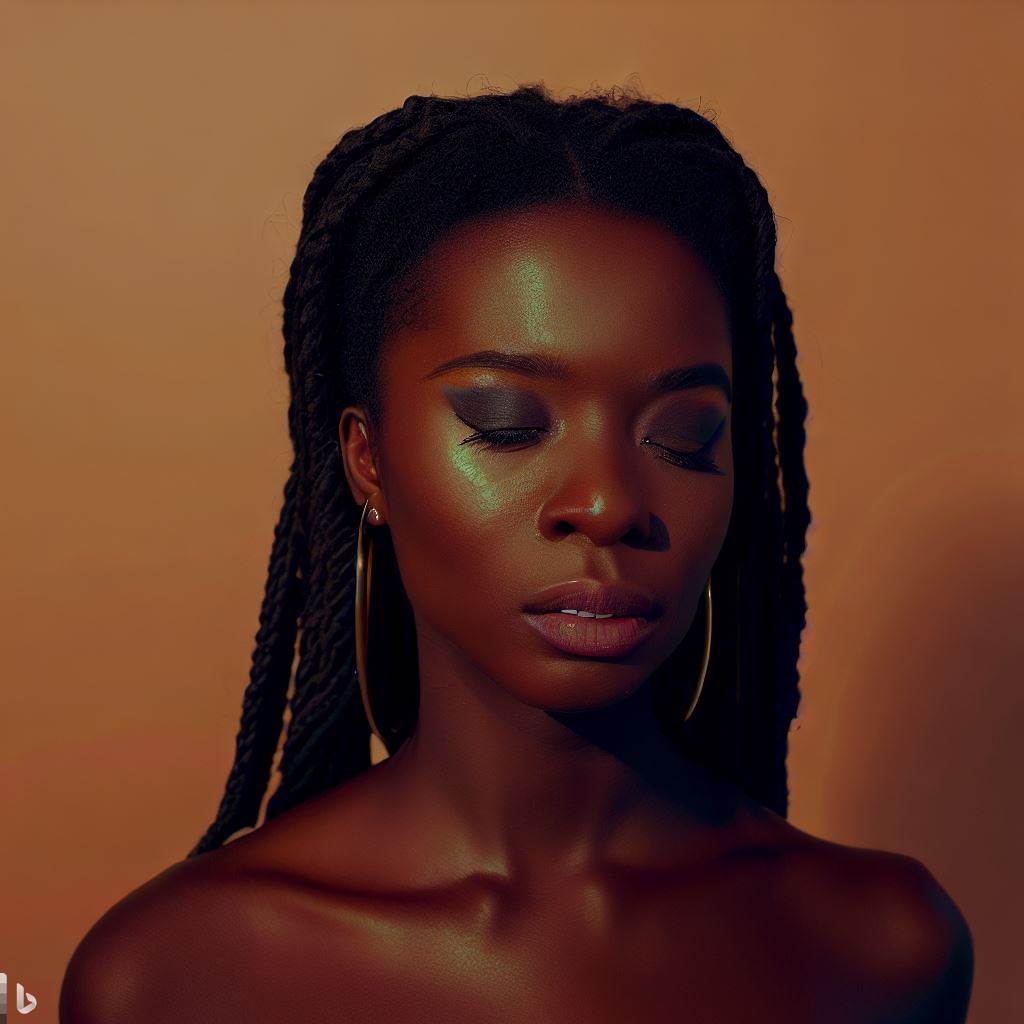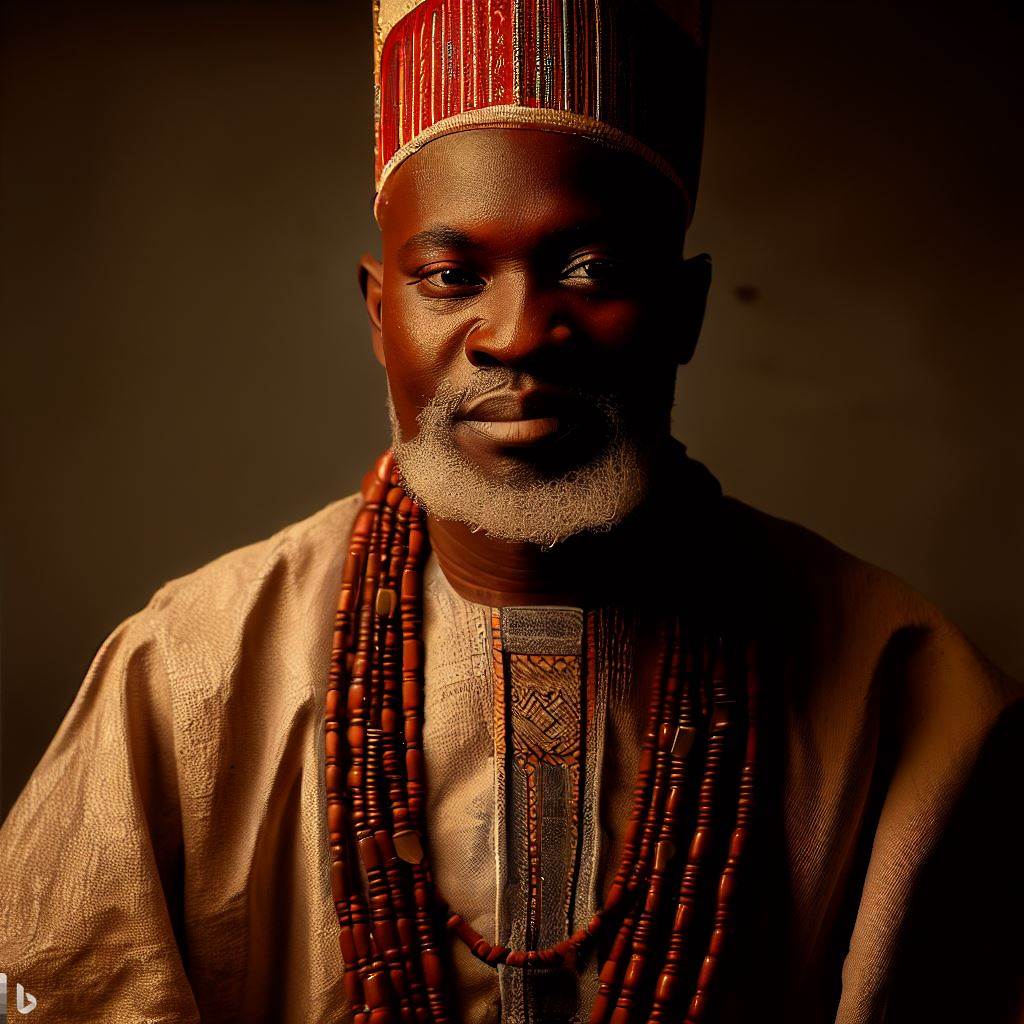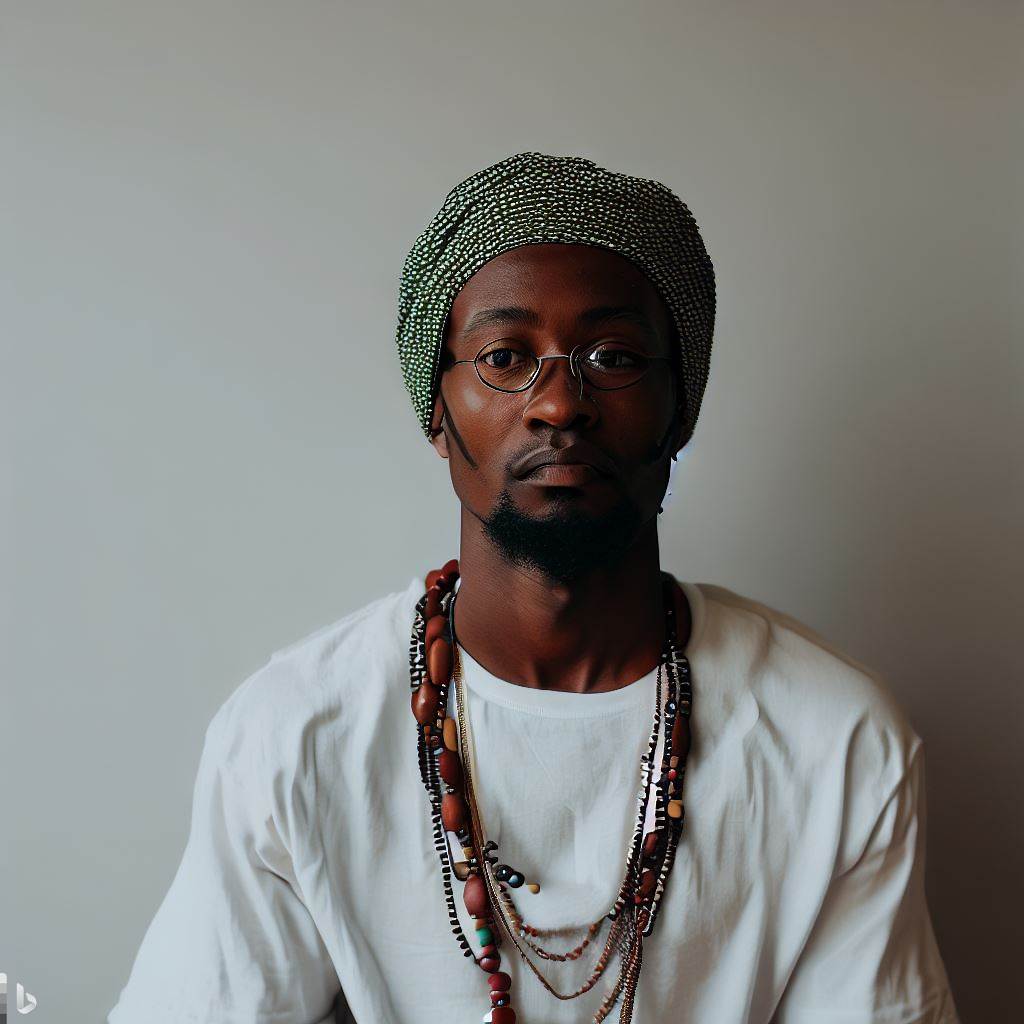Introduction
In the music world, songwriting refers to the process of creating lyrics and melodies for songs. It is a creative form of expression that allows artists to communicate their thoughts, emotions, and stories through music.
Songwriting plays a crucial role in the music industry as it is the foundation for creating hit songs that resonate with audiences.
The importance of the songwriting industry cannot be overlooked. It serves as the backbone of the music business, providing a constant stream of new and original material for artists to record and perform.
Songwriters are the storytellers who bring life to music, capturing the essence of human experiences and emotions. They have the power to inspire, entertain, and bring people together through their craft.
In Nigeria, the music industry has experienced tremendous growth over the years. With its rich cultural heritage and diverse musical genres, Nigeria has become a hub for creativity and talent.
The Nigerian music scene is known for its vibrant Afrobeat, Highlife, and Afropop sounds, which have gained international recognition.
This has led to increased investments in the industry, both locally and internationally.
The growth of the Nigerian music industry has opened up numerous opportunities for songwriters.
Record labels, music producers, and artists are constantly searching for fresh and unique songs that will capture the attention of listeners.
Songwriters play a pivotal role in this process, providing the creative spark that drives the industry forward.
In short, songwriting is an integral part of the flourishing Nigerian music industry. It allows artists to express themselves and connect with audiences on a deeper level.
The growth of the industry has created a demand for talented songwriters, making it an exciting and rewarding time for individuals in this field.
Historical Overview
A. Evolution of songwriting in Nigeria
Nigeria, known for its rich musical heritage, has a long history of songwriting that dates back centuries.
The evolution of songwriting in Nigeria can be traced from traditional folk music to the contemporary genres that dominate the industry today.
B. Pioneers of Nigerian songwriting
The early pioneers of Nigerian songwriting were talented musicians who paved the way for future generations.
One such pioneer was Fela Kuti, known for his Afrobeat sound and impactful lyrics that addressed political and social issues.
Another notable figure in Nigerian songwriting is King Sunny Ade, often referred to as the “King of Juju music”.
His innovative use of the guitar and incorporation of traditional Yoruba music elements gained him international acclaim.
Traditional Nigerian music has heavily influenced modern songwriting in the country. Indigenous genres like Highlife, Juju, and Afrobeat have shaped the sound and style of Nigerian music today.
Highlife, a popular genre in the mid-20th century, fused traditional African rhythms with Western influences.
Pioneered by musicians like Bobby Benson and Victor Olaiya, Highlife laid the foundation for the vibrant Nigerian music scene.
Juju music, on the other hand, emerged in the 1920s and became widespread in the 1960s. It combines elements of traditional Yoruba percussion with Western instruments like the guitar and accordion.
The late Ayinde Barrister is credited with popularizing Juju music and making it a cultural phenomenon.
Arguably the most influential genre from Nigeria is Afrobeat, a fusion of jazz, funk, and traditional African rhythms.
Fela Kuti, mentioned earlier, was instrumental in shaping and popularizing this genre both locally and internationally.
C. Influence of traditional Nigerian music on songwriting
The influence of traditional Nigerian music on songwriting is evident in the rhythmic patterns, instrumentation choices, and lyrical themes.
Songs often incorporate African percussion instruments, such as the talking drum and shekere, to create an authentic sound.
Lyrics in Nigerian songs often tell stories, address social issues, and celebrate culture and heritage.
Traditional proverbs, folk tales, and indigenous languages are frequently used, giving the songs a distinct Nigerian flavor.
In recent years, the Nigerian songwriting industry has experienced tremendous growth and recognition globally.
Artists like Burna Boy, Davido, and Wizkid have gained international acclaim and brought Nigerian music to the forefront of the global music scene.
In conclusion, the historical overview of songwriting in Nigeria highlights the rich musical heritage and the evolution of the industry.
Pioneers like Fela Kuti and King Sunny Ade, along with the influence of traditional Nigerian music, have shaped the sound and style of Nigerian songwriting.
With the rise of contemporary Nigerian artists, the industry continues to flourish and make its mark on the world stage.
Read: Emerging Trends in Scriptwriting: Nigeria’s Perspective
Current Landscape of the Songwriting Industry in Nigeria
Several factors shape Nigeria’s songwriting industry today, driving its growth and success.
Key influences include the ascent of Afrobeat music, blending traditional Nigerian and Western styles, making it a local and global favorite.
The surge in Afrobeat’s popularity fuels increased songwriting activity, meeting its demand for infectious rhythms and catchy melodies.
Global music trends, accessible via streaming and social media, expose Nigerian songwriters to diverse styles and techniques.
They blend these influences to create a unique and varied songwriting landscape appealing to both local and international audiences.
Successful Nigerian songwriters, like Burna Boy and Tiwa Savage, play pivotal roles in the industry.
Burna Boy, an Afrobeat icon, not only produces his hits but also writes and co-writes chart-topping songs, elevating Nigerian songwriters globally.
Tiwa Savage, a renowned singer-songwriter, contributes significantly to Nigeria’s music scene, crafting hits for herself and other artists.
Other accomplished songwriters, including Wizkid, Davido, and Yemi Alade, consistently dominate Nigerian music charts and gain worldwide recognition.
Essentially, Afrobeat’s rise, global music influences, and the success of Nigerian songwriters drive the flourishing songwriting industry. With talented artists pushing boundaries, Nigeria’s songwriting future shines brightly.
Read: The Role of Scriptwriters in Nollywood’s Global Success
Challenges Faced by Nigerian Songwriters
Nigeria, known for its vibrant music industry, has seen a rise in the number of talented songwriters.
However, these songwriters often confront various challenges that hinder their success and growth in the industry.
In this section, we will explore the major obstacles faced by Nigerian songwriters.
1. Lack of adequate infrastructure and resources
Nigerian songwriters often struggle with limited access to essential resources and infrastructure.
This includes recording studios, professional equipment, and technology needed to refine their craft.
Without proper facilities, songwriters face difficulties in producing high-quality music.
2. Copyright infringement and royalty issues
Songwriters in Nigeria often encounter challenges related to copyright infringement and royalty collection.
Many songwriters have their songs illegally copied or sampled by other artists without proper authorization or compensation.
This not only affects their income but also undermines their creative rights.
3. Limited recognition and support for songwriters
Despite their significant contribution to the music industry, songwriters in Nigeria often face a lack of recognition and support.
Songwriters are often overshadowed by the performing artists, resulting in a lack of appreciation for their creative work.
This diminishes their motivation and makes it harder to establish themselves as professionals in the industry.
4. Inadequate music education and training
The availability of formal music education and training programs for songwriters is limited in Nigeria.
Many aspiring songwriters struggle to access proper training and education, which are crucial for developing their songwriting skills and understanding the technical aspects of the craft.
5. Lack of music industry transparency
Transparency in the music industry is essential, yet Nigerian songwriters face challenges in this aspect.
The lack of clear guidelines and regulations for contracts, licensing, and distribution often leads to exploitation and unfair treatment.
This creates an atmosphere of uncertainty and distrust for songwriters.
6. Financial constraints
Nigerian songwriters often face financial constraints, preventing them from fully realizing their creative potential.
The costs associated with production, promotion, and marketing can be overwhelming, especially for independent songwriters who lack financial backing.
This limits their ability to invest in their art and reach a wider audience.
7. Limited platforms for exposure
Songwriters in Nigeria struggle to find platforms that offer sufficient exposure to showcase their talent.
While there are numerous music festivals, competitions, and talent shows, these opportunities are often crowded and competitive.
This lack of accessible platforms further hinders the growth and recognition of Nigerian songwriters.
8. Cultural pressure and limited artistic freedom
Nigerian songwriters often face cultural pressure and limited artistic freedom in their songwriting.
Certain societal expectations and restrictions can limit their creativity and expression, leading to the creation of songs that may not fully represent their true artistic vision.
Most importantly, Nigerian songwriters face a multitude of challenges that hamper their growth and success in the music industry.
These challenges include a lack of infrastructure and resources, copyright infringement, limited recognition and support, inadequate education and training, lack of transparency, financial constraints, limited platforms for exposure, and cultural pressure.
Addressing these challenges is crucial to fostering a thriving songwriting industry in Nigeria and providing songwriters with the support they need to flourish.
Read: Scriptwriting for Theatre vs Film in Nigeria: A Comparison
Opportunities and Developments
Nigeria’s music industry has seen tremendous growth in recent years, and songwriting is among the sectors experiencing significant opportunities and developments.
The demand for Nigerian music has skyrocketed globally, opening up numerous avenues for talented songwriters to showcase their skills.
A. Growing demand for Nigerian music globally
One of the key opportunities in the Nigerian songwriting industry is the growing global demand for Nigerian music.
The unique and vibrant sounds of Nigeria have captivated audiences worldwide, leading to increased visibility and recognition for songwriters.
The rise of platforms like Spotify and Apple Music has made it easier for Nigerian songs to reach a global audience, creating more opportunities for songwriters to gain international acclaim.
B. Increasing collaborations with international artists
In addition to the growing demand, Nigerian songwriters are also benefiting from increasing collaborations with international artists.
Global stars are increasingly recognizing the talent in Nigeria’s music industry and are eager to work with local songwriters and producers.
These collaborations not only provide exposure to Nigerian songwriters but also offer the chance to learn from established international musicians, leading to further career growth and development.
C. Emerging platforms and programs supporting songwriters
Furthermore, the emergence of platforms and programs dedicated to supporting songwriters has also contributed to the development of the industry.
These platforms provide songwriters with resources, mentorship, and networking opportunities, all crucial elements for success in the highly competitive music industry.
Organizations such as Songwriters Association of Nigeria (SONGA) and the Nigerian Music Rights Organization (NMRO) help protect the rights of songwriters and ensure they receive fair compensation for their work.
Another notable development is the increasing number of songwriting contests and talent shows that allow songwriters to showcase their abilities and gain recognition.
Publish Your Professional Profile, Business or Brand
Showcase your expertise, gain trust, and boost visibility instantly on Professions.ng.
Publish NowShows like The Voice Nigeria and Nigerian Idol provide a platform for aspiring songwriters to not only showcase their talent but also receive valuable feedback and guidance from industry experts.
The exposure gained through these shows can be a stepping stone to future collaborations and career opportunities.
The flourishing songwriting industry in Nigeria presents endless possibilities for talented individuals.
Songwriters now have the chance to not only make a name for themselves within the Nigerian music scene but also gain global recognition.
The increasing demand for Nigerian music, collaborations with international artists, and the support provided by emerging platforms and programs contribute to the growth and development of the industry.
Aspiring songwriters should take advantage of these opportunities and actively seek out avenues to showcase their talent.
By staying updated on industry trends, networking with fellow songwriters, and leveraging the available platforms and programs, Nigerian songwriters can establish successful careers in the ever-evolving music industry.
Read: Balancing Creativity & Market Demand: Nigeria’s Scriptwriters

Impact of Technology on the Songwriting Industry in Nigeria
Technology has revolutionized every aspect of our lives, and the songwriting industry in Nigeria is no exception.
In recent years, advancements in technology have had a significant impact on the songwriting process, promotion, distribution, and production.
Here, we explore the various ways in which technology has shaped and transformed the songwriting industry in Nigeria.
A. Role of Social Media in Promoting Songwriting Talents
- Social media platforms like Instagram, Twitter, and Facebook have provided songwriters in Nigeria with a powerful tool to showcase their talents.
- Songwriters can now easily reach and connect with a wider audience, gaining exposure and recognition.
- These platforms allow songwriters to interact directly with their fans, receiving real-time feedback and building a loyal following.
- Furthermore, popular social media challenges and trends have helped songwriters gain visibility and go viral.
B. Digital Platforms and Streaming Services
- Digital platforms and streaming services like Spotify, Apple Music, and YouTube Music have revolutionized the way music is consumed.
- Songwriters can now release their music directly to these platforms, bypassing traditional record labels.
- This has opened up new opportunities for emerging songwriters in Nigeria, allowing them to gain recognition without extensive financial backing.
- Streaming services also provide songwriters with valuable data analytics, which helps them understand their audience better.
C. Advancements in Recording Technology and Production Tools
- The availability of affordable recording equipment and software has democratized music production in Nigeria.
- Songwriters can now create professional-quality recordings from the comfort of their own homes.
- Production tools such as virtual instruments and digital audio workstations (DAWs) have made it easier for songwriters to experiment and bring their creative vision to life.
- Additionally, the ability to collaborate remotely has become easier with online platforms and cloud-based project sharing.
In a nutshell, technology has had a profound impact on the songwriting industry in Nigeria.
From the role of social media in promoting songwriting talents to the rise of digital platforms and streaming services, and advancements in recording technology and production tools, technology has transformed the landscape of the industry.
As technology continues to evolve, it is exciting to imagine the possibilities it will bring for songwriters in Nigeria and beyond.
The Role of Songwriting in Nigerian Society
A. Representation of culture and heritage through music
- Nigerian songwriters are the storytellers of our rich cultural tapestry, weaving tales of tradition and history.
- They celebrate diversity, using music to showcase Nigeria’s numerous ethnic groups, languages, and traditions.
- Through lyrics and melodies, songwriters preserve the essence of Nigerian heritage for future generations.
- Traditional instruments and rhythms find their way into modern songs, bridging the past and present.
- These songs serve as a sonic archive, ensuring that cultural legacies endure in the hearts of Nigerians.
B. Influence on social and political issues
- Songwriters wield their pens as swords, addressing social injustices and sparking conversations.
- They tackle issues like corruption, poverty, and inequality, amplifying the voices of the marginalized.
- Protest songs have played a pivotal role in Nigerian political movements, driving change.
- By holding leaders accountable through their lyrics, songwriters act as a watchdog for society.
- Their songs serve as anthems of resistance, uniting Nigerians in the fight for a better nation.
C. Impact on the entertainment industry and Nigerian economy
- Nigerian songwriters are the architects of the country’s booming music industry.
- Their compositions attract global attention, making Nigerian music a cultural export.
- The entertainment sector, driven by songwriting, contributes significantly to Nigeria’s GDP.
- Songwriters create employment opportunities for musicians, producers, and related professions.
- Festivals and concerts fueled by their music boost tourism and generate revenue.
In Nigeria, songwriting transcends mere words and melodies.
It’s a powerful tool for cultural preservation, a catalyst for change, and an economic driver.
It’s the heartbeat of a nation, pulsating with the rhythms of tradition, protest, and prosperity.
Conclusion
The flourishing songwriting industry in Nigeria has shown tremendous growth and potential.
Nigerian songwriters have gained recognition at both the national and international levels, contributing to the country’s cultural and economic development.
It is crucial to support and empower Nigerian songwriters in order to sustain and further enhance the industry. They play a vital role in preserving and promoting Nigerian music, history, and heritage.
Additionally, by supporting songwriters, opportunities for collaboration and innovation can arise, leading to the creation of unique and diverse music.
Looking ahead, the future prospects for the Nigerian songwriting industry are bright.
With the rise of digital platforms and streaming services, Nigerian songwriters have more opportunities to reach global audiences and monetize their work.
This opens doors for increased revenue and visibility, benefiting both the songwriters and the Nigerian music industry as a whole.
Furthermore, the rich cultural diversity and musical talent in Nigeria provide a fertile ground for the growth of the songwriting industry.
As more young Nigerians pursue careers in music and songwriting, the industry will continue to thrive and evolve.
In the end, the Nigerian songwriting industry is a powerful force that showcases the creativity and talent of the nation.
By supporting and empowering Nigerian songwriters, we can ensure the industry’s sustainability and contribute to the growth of Nigerian music on a global scale.




